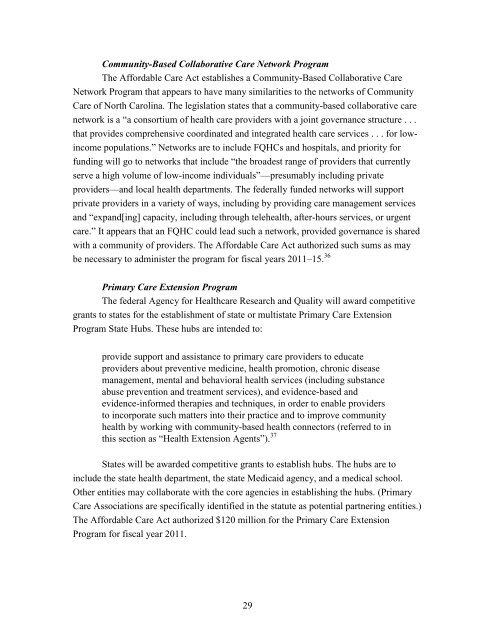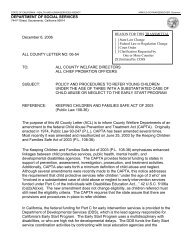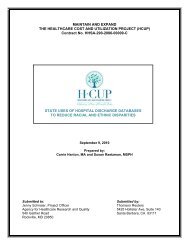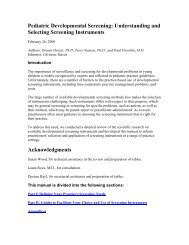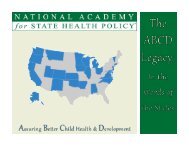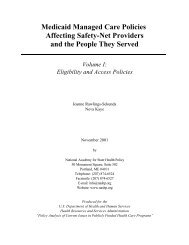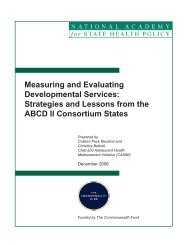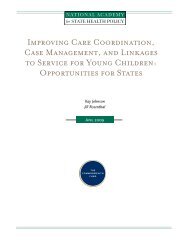Developing Federally Qualified Health Centers into Community ...
Developing Federally Qualified Health Centers into Community ...
Developing Federally Qualified Health Centers into Community ...
Create successful ePaper yourself
Turn your PDF publications into a flip-book with our unique Google optimized e-Paper software.
<strong>Community</strong>-Based Collaborative Care Network Program<br />
The Affordable Care Act establishes a <strong>Community</strong>-Based Collaborative Care<br />
Network Program that appears to have many similarities to the networks of <strong>Community</strong><br />
Care of North Carolina. The legislation states that a community-based collaborative care<br />
network is a ―a consortium of health care providers with a joint governance structure . . .<br />
that provides comprehensive coordinated and integrated health care services . . . for lowincome<br />
populations.‖ Networks are to include FQHCs and hospitals, and priority for<br />
funding will go to networks that include ―the broadest range of providers that currently<br />
serve a high volume of low-income individuals‖—presumably including private<br />
providers—and local health departments. The federally funded networks will support<br />
private providers in a variety of ways, including by providing care management services<br />
and ―expand[ing] capacity, including through telehealth, after-hours services, or urgent<br />
care.‖ It appears that an FQHC could lead such a network, provided governance is shared<br />
with a community of providers. The Affordable Care Act authorized such sums as may<br />
be necessary to administer the program for fiscal years 2011–15. 36<br />
Primary Care Extension Program<br />
The federal Agency for <strong>Health</strong>care Research and Quality will award competitive<br />
grants to states for the establishment of state or multistate Primary Care Extension<br />
Program State Hubs. These hubs are intended to:<br />
provide support and assistance to primary care providers to educate<br />
providers about preventive medicine, health promotion, chronic disease<br />
management, mental and behavioral health services (including substance<br />
abuse prevention and treatment services), and evidence-based and<br />
evidence-informed therapies and techniques, in order to enable providers<br />
to incorporate such matters <strong>into</strong> their practice and to improve community<br />
health by working with community-based health connectors (referred to in<br />
this section as ―<strong>Health</strong> Extension Agents‖). 37<br />
States will be awarded competitive grants to establish hubs. The hubs are to<br />
include the state health department, the state Medicaid agency, and a medical school.<br />
Other entities may collaborate with the core agencies in establishing the hubs. (Primary<br />
Care Associations are specifically identified in the statute as potential partnering entities.)<br />
The Affordable Care Act authorized $120 million for the Primary Care Extension<br />
Program for fiscal year 2011.<br />
29


